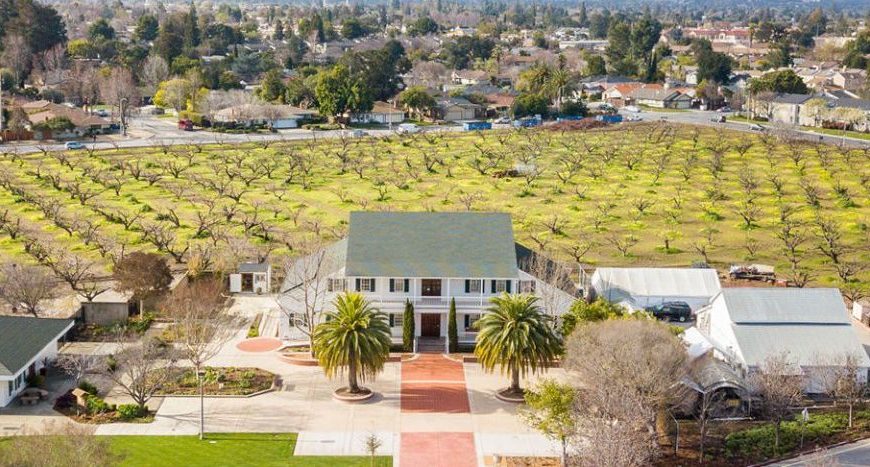The Sunnyvale Historical Society and Museum Association’s proposal to expand the Sunnyvale Heritage Park Museum with a 1,600 square-foot addition has led to deep tensions in the community because the project requires the removal of between six and 10 apricot trees in the adjoining Heritage Park.
City Council met on July 16 and, following lengthy deliberations and a multitude of impassioned public comments, decided to proceed with a California Environmental Quality Act (CEQA) study for the project and is scheduled to meet again for a final decision on the project in coming months.
At the meeting, City staff spoke about the twin long-term goals of maintaining a working fruit orchard throughout the largest portion of Heritage Park as well as continuing to support and develop the Heritage Museum. A study is currently being done to determine the best ways to reach the goals and is expected to be completed by the end of the year.
Both the museum and orchard are on City-owned property. While the Sunnyvale Historical Society has run the museum site for the past 10 years, Charlie Olsen has run the orchard since 1977. The orchard currently has over 800 trees on a 10-acre portion. If approved, the project would extend the museum’s footprint to the rear, spilling over into a small portion of the orchard and thus requiring the removal of a few trees. The plan is to replace the trees with new ones elsewhere on the orchard, though community members who oppose the project have pointed out that it takes many years for apricot trees to reach productive maturity.
Laura Babcock, Director of the Heritage Museum, said that the project will have a minuscule impact on the orchard. She said the expansion will house a large exhibit of local tech history from the Cold War onward, including previously classified research conducted by the U. S. Air Force at the building known as “Blue Cube.” Such declassified research has reportedly spurred much interest nationally. The expansion will also allow for a historical research library for use by individuals as well as private and public institutions.
Sunnyvale residents have been focusing on this issue for months. On Feb. 20, 150 people attended an outreach meeting regarding the project, with many taking strong positions. A contingent of people have emerged supporting the project due to the potential to increase research opportunities and preserve tech history, which has become a major part of the City’s history. Others are adamant that they don’t want to see the loss of any open space or trees in the orchard, or see any reductions made to the last remaining orchard in Sunnyvale, which they view as a living testament to the City’s agrarian past.
Council Members also have differing viewpoints as two ended up voting in opposition to the CEQA study for the project moving ahead. Vice Mayor Russ Melton pointed out that over the past few years the museum has accumulated several applications on file with the City for various expansion activities. He surmised that these attempts have resulted in a sense of anxiety among community members regarding the future of the orchard. However, the prevailing opinion was that the orchard will still continue to function unimpeded by the project.
A long line of residents spoke at the City Council meeting including Laura Babcock and Charlie Olsen who stated their respective positions. Although there’s no plan to eliminate the orchard, residents pointed out the value of the orchard as a “living history” and see the museum’s expansion as a slippery slope — a few trees taken now could turn into more trees taken in the future until there’s no orchard left.
Many advocated for City Council to make a declaration explicitly preserving the orchard for perpetuity. One resident suggested that some of the site’s surface parking be used for the expansion instead of the parkland. Another pointed out that though the apricot trees are mature, they’re not classified as heritage trees and so are more easily replaced. By the end of the public comment period it was clear that many in Sunnyvale bemoan the loss of Silicon Valley’s vast tracts of orchards, replaced by concrete development.






